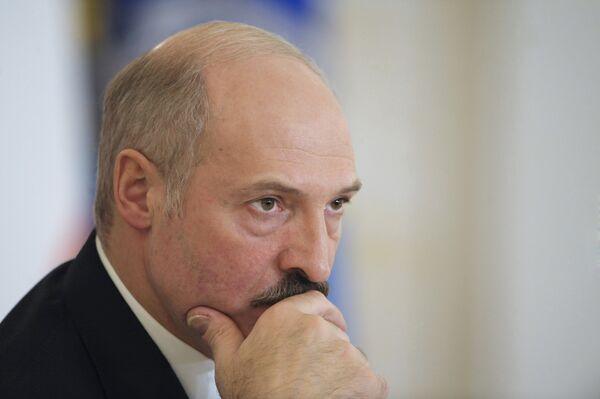Despite its best efforts, Belarus has been unable to secure a level playing field for its trade with Russia, President Alexander Lukashenko said on Tuesday.
"We [Belarus and Russia] sign serious documents, agree large-scale accords with our strategic ally [Russia], but at the same time can't secure transparent and fair terms of mutual trade," Lukashenko said, adding that Minsk was patiently building bilateral relations with Moscow and would continue to do so.
Lukashenko's statement came after a visit to Venezuela during which he agreed with President Hugo Chavez that the Latin American country would supply up to 80,000 barrels of crude oil per day to Belarus. The deal follows a bitter dispute with Russia at the start of the year over duty-free oil imports.
Lukashenko said Minsk's contacts in other regions should not be seen by Russians or Europeans as a disaster or backtracking on its earlier position, saying Belarus was seeking to make a profit where it could find understanding.
Relations between Moscow and Minsk have been soured by a series of economic disputes, including over Russian energy supplies and Belarusian dairy produce.
Minsk earlier filed a lawsuit with the post-Soviet bloc economic court against Russia's decision to charge duties on oil supplied to the ex-Soviet republic and refined for re-export.
Belarus has little hydrocarbon resources and depends on fuel supplies from Russia. Early this year the two ex-Soviet neighbors were involved in a dispute over oil supplies, as Moscow demanded Minsk pay full import duties on crude it refines and resells to Europe, dropping considerable subsidies.
Belarus demanded Russia supply up to 30 million metric tons of oil duty-free as part of the establishment of a customs union between the two countries and Kazakhstan.
Minsk threatened to increase transit fees for Europe-bound oil, but in late January the two sides agreed a deal under which Belarus will receive 6.3 million metric tons of oil duty-free this year. That is expected to meet the country's domestic needs, but the volume could rise later depending on its economic performance.
Last year, Russia and Belarus were embroiled in a milk row after Moscow imposed a ban on Belarusian dairy products, claiming Belarus had failed to comply with new regulations despite repeated warnings. The trade is worth $1 billion a year to Belarus, which responded by briefly imposing tough customs controls on border crossings with Russia.
MINSK, March 30 (RIA Novosti)


